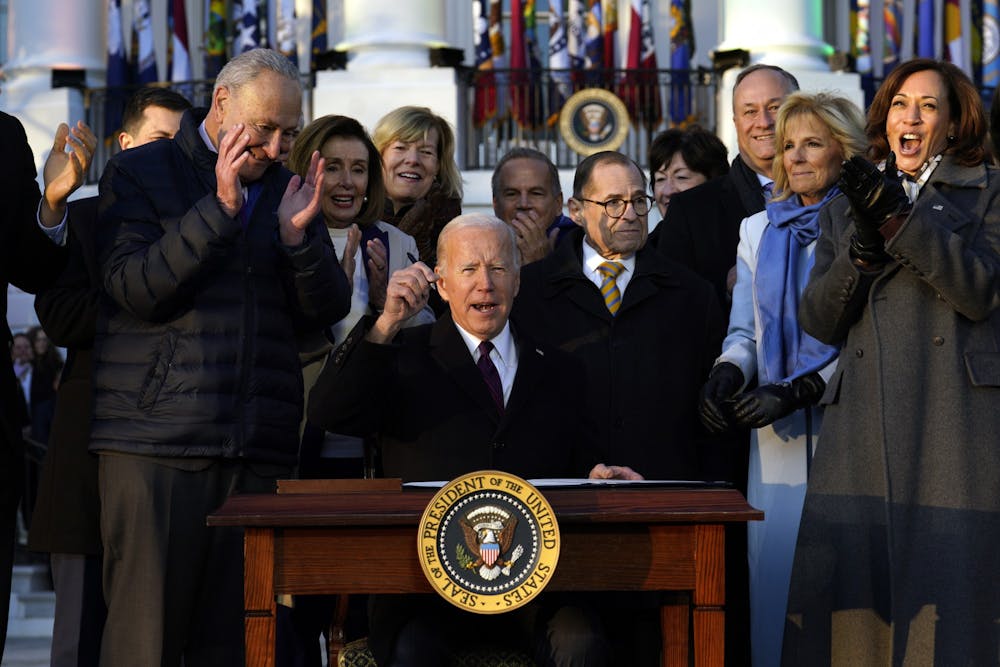President Joe Biden signed the Respect for Marriage Act into law on Tuesday, December 13. The bipartisan bill codifies federal protections for same-sex marriage and was signed during a White House ceremony.
Related: [Respect for Marriage Act passes Congress, but future still unclear for Indiana students]
"Today is a good day," Biden said at the commemoration ceremony, according to ABC. "A day America takes a vital step toward equality, for liberty and justice, not just for some, but for everyone."
Movement to codify same-sex marriage protections came after the Supreme Court overturned Roe v. Wade, a landmark case which protected the right to abortion. In his concurring opinion, Justice Clarence Thomas mentioned Obergefell v. Hodges, the 2015 ruling which affirmed the right to same-sex marriage, as another potential case for review, according to CNBC.
Related: [Roe v. Wade's overturn: the issue explained]
The Respect for Marriage Act does not guarantee the federal right to same-sex marriage; right now, that’s only secured by the Obergefell v. Hodges precedent. What the law does secure is the recognition of legal same-sex marriages, meaning that if the Court’s precedent was overturned, same-sex marriages performed in states with protective laws or already-existing marriages would be honored federally, according to ABC.
The bill passed the Senate in a 61-36 vote Nov. 29 and the House 258-169 with one "present” neutral vote Dec. 8.




